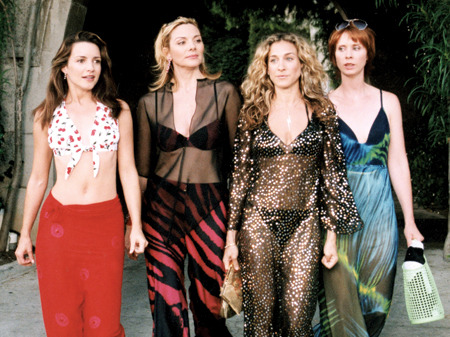
I recently had the unfortunate experience of having several close friendships severed irretrievably. The foundations failing and bringing the whole convoluted infrastructure down on itself in a fraction of the time it took to build. If a coroner was to cast a verdict on the limp corpse of philia that remains, the verdict would undoubtedly be: death from natural causes. Then, why does the very notion of an end to a friendship seem so decidedly unnatural?
I’m a child of divorce, there are several ongoing feuds and grudges within my family and I’ve experienced the heartbreak of two serious boyfriends falling out of love with me. I’m no stranger to the breakdown of relationships and often thought myself to be quite resilient. But friendship has always had an ethereal quality about it to me. It’s supposed to outlive everyone else, purely because friends are the people you turn to when there is no one else. It’s not designed to fold in on itself at the first hint of trouble.
When I began to think about it in greater depth, a question struck me: why should friends be considered more reliable than anyone else? They’re only people after all. But the resounding betrayal in that statement is so acute that I find it difficult to give it any credence.
Personal relationships are often tumultuous and complex due to the innate fickleness of people. And while I’m never necessarily prepared for them to fall apart, I certainly accept it. How did I ever attach myself so deeply to the notion that friendship is immune to that? The simple fact is it isn’t. But why is it so much harder to come to terms with compared to the broken bonds of relatives and lovers?

Friendship is inexplicably embedded in popular culture. From the endless quotes emblazoned on fridge magnets: Two heads are better than one, Choose your friends wisely, Keep your friends close to the fictional depictions of the characters of Friends and Sex and the City. All heralding friendship as the the defining relationship of the age. The trials and tribulations of platonic love served up in an aurally appealing witty repertoire.
The area it doesn’t cover however is the unceremonious dumping of a friend. The phone calls not returned and unanswered emails left to languish. Or the fiery meltdown of a clash of personalities left miserably unresolved. Friendship can be a virtue and it can be a vice. Similarly, social networking can be a blessing and it can be a curse. If only making a clean break in the real world was as easy as the click of a button in the cyberworld. Memories aren’t as so easily eradicated as the de-tagging of an onscreen photograph.
I guess what it all boils down to though is choice. Plain and simple. You can’t choose your family, you can’t choose who you fall in love with but you can choose your friends. Maybe that’s why it’s so painful. After choosing to align your desires and pursuits to fellow like-minded individuals, the betrayal felt when this goes awry is deeper because it was your conscious decision to form the alliance. People change, they accept new responsibilities, they enter different stages of life, but the careful selection of their companionship should be flexible enough to withstand that. The simple fact is: a friendship dies when there is no longer a need for it.
“Friendship is unnecessary, like philosophy, like art, like the universe itself (for God did not need to create). It has no survival value; rather it is one of those things which give value to survival.”
- C.S Lewis

We might never re-establish the friendships we’ve lost, but we can resolve to make our existing friendships better.










No comments:
Post a Comment